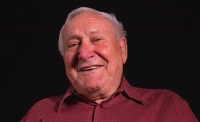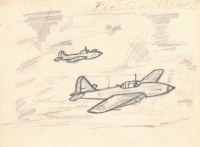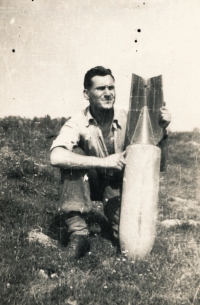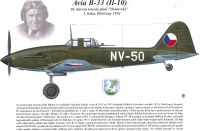I was terrified of the mass psychosis

Download image
Oldřich Schreiber was born on 16 February 1932 in Prague. He comes from a mixed Czech-Jewish family and was therefore classified by the Nazi Nuremberg Laws as a “first-degree half-breed”. Mother Olga, née Fišerová, was deported to Terezín as a Jewish woman during the war, father František and brother Arnošt Schreiber spent the final phase of the war in labour camps. Oldřich was probably spared due to his young age and remained alone in his native town of Říčany. At the end of the war, the family was happy to gather again; Oldřich, together with his brother Arnošt, participated in the fighting of the rebel insurgents against the Nazis and also witnessed the shooting of two retreating German soldiers by the Revolutionary Guards. The family had Soviet soldiers staying in their house. On February 25, 1948, at the height of the communist putsch, Oldřich Schreiber took part in the communist demonstration on Wenceslas Square - he was an apprentice at that time and was taken there by the masters, regardless of his opinion. In 1951, Oldřich Schreiber became a chairman of the Tatra Křižík aeroclub, to which he provided political coverage and thus enabled it to exist. In the years 1953-56 he served in the army as a gunner of a combat aircraft.









